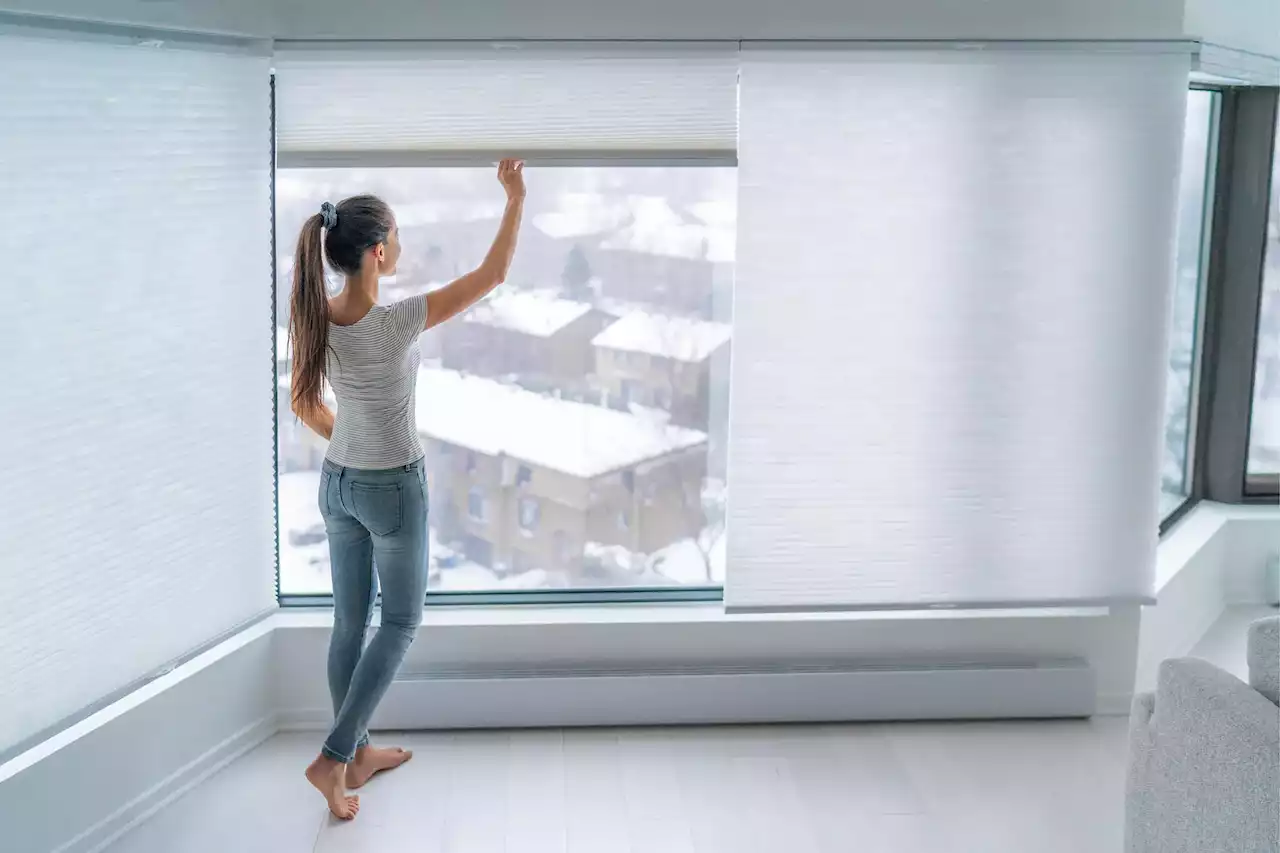Researchers at the Department of Energy’s Oak Ridge National Laboratory (ORNL) demonstrated that window shades with a cellular or honeycomb structure provide higher energy savings during winter compared to generic venetian blinds and can save millions of tons of carbon emissions. Windows contrib
) demonstrated that window shades with a cellular or honeycomb structure provide higher energy savings during winter compared to generic venetian blinds and can save millions of tons of carbon emissions.
Windows contribute to energy demand in residential homes because they let heat escape; coverings can improve insulation. In a study, researchers compared the performance of three single-cell and two cell-in-cell-construction cellular shades with that of generic horizontal venetian blinds. The shades were installed from December to March for two heating seasons over windows in adjacent, identical second-floor rooms in a home in the Southeast United States.
Oak Ridge National Laboratory researchers tested the performance of cellular shades in a two-story residential home in the Southeast and proved coverings with a honeycomb structure provide significant energy savings during winter and can potentially reduce carbon emissions. Credit: ORNL, U.S. Dept. of Energy
“The room with the cellular shades achieved up to 24% heating energy savings,” ORNL’s Mahabir Bhandari said. Additional energy simulations predicted how the shades would perform in different climate zones. “Nationally, carbon emissions could potentially be reduced up to 3 million tons assuming a 20% penetration rate of cellular shades in residential buildings.”
Reference: “National energy savings potential of cellular shades: A measurement and simulation study” by Niraj Kunwar, Mahabir Bhandari and Dragan C. Curcija, 14 September 2022,The percentage of US household utility bills that goes toward heating varies depending on factors such as the region, the size of the home, and the heating system used.
United States Latest News, United States Headlines
Similar News:You can also read news stories similar to this one that we have collected from other news sources.
 Crashing Moons Might Be Annihilating Aliens Somewhere, Researchers ArgueMoons could be necessary for creating a planet stable enough for life, but they could also be wiping out life on a regular basis, too.
Crashing Moons Might Be Annihilating Aliens Somewhere, Researchers ArgueMoons could be necessary for creating a planet stable enough for life, but they could also be wiping out life on a regular basis, too.
Read more »
 Chinese hackers are becoming more sophisticated, Google researchers sayGoogle researchers told The Wall Street Journal that Chinese hackers are reportedly becoming more sophisticated with their attacks on government and business networks.
Chinese hackers are becoming more sophisticated, Google researchers sayGoogle researchers told The Wall Street Journal that Chinese hackers are reportedly becoming more sophisticated with their attacks on government and business networks.
Read more »
 Mediterranean Diet Linked to 24% Reduction in CVD Risk in WomenThe Mediterranean diet appears to be associated with a lower incidence of CVD and mortality in women, new observational data suggest.
Mediterranean Diet Linked to 24% Reduction in CVD Risk in WomenThe Mediterranean diet appears to be associated with a lower incidence of CVD and mortality in women, new observational data suggest.
Read more »
 America’s timeline for development of domestic battery metal supply chain may be unrealistic – researchResearchers say the aggressive timeline of the Inflation Reduction Act may be unrealistic.
America’s timeline for development of domestic battery metal supply chain may be unrealistic – researchResearchers say the aggressive timeline of the Inflation Reduction Act may be unrealistic.
Read more »
 Advocates Call for Regulatory Change After Blocking Deportation of Woman in ComaResearchers estimate that hundreds — if not thousands — of medical deportations take place a year. prismreports
Advocates Call for Regulatory Change After Blocking Deportation of Woman in ComaResearchers estimate that hundreds — if not thousands — of medical deportations take place a year. prismreports
Read more »
 Science, Quickly: Squeak Squeak, Buzz Buzz: How Researchers Are Using AI to Talk to Animals on Apple PodcastsOn this episode of Science, Quickly: kelso_harper and sophiebushwick discuss how scientists are starting to communicate with animals and how these conversations are forcing us to rethink our relationship with other species 🎧 Listen on ApplePodcasts:
Science, Quickly: Squeak Squeak, Buzz Buzz: How Researchers Are Using AI to Talk to Animals on Apple PodcastsOn this episode of Science, Quickly: kelso_harper and sophiebushwick discuss how scientists are starting to communicate with animals and how these conversations are forcing us to rethink our relationship with other species 🎧 Listen on ApplePodcasts:
Read more »
